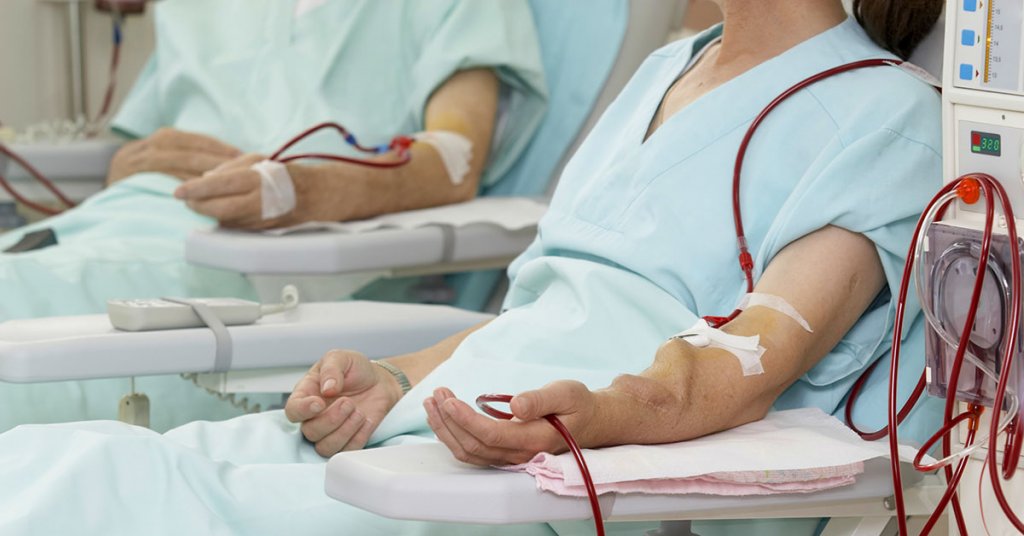Kidney disease affects millions in the U.S., posing unique challenges for women. Early detection and treatment are crucial in managing this significant health issue. This blog explores the signs, causes, and preventive measures related to kidney disease in women
Understanding Kidney Disease
The kidneys regulate blood pressure, filter waste from the blood, and maintain electrolyte balance. When kidneys are diseased or injured, these functions are compromised, leading to various health problems.
Recognizing Kidney Disease Symptoms in Women
Women may experience different symptoms of kidney disease, which can develop gradually. Early detection is key to preventing complications. Here are some common symptoms to look out for:
- Changes in Urination Patterns: Increased urination, especially at night (nocturia), difficulty urinating, or foamy urine indicating protein leakage.
- Swelling (Edema): Fluid retention can cause swelling in the hands, feet, ankles, or face. Persistent swelling needs medical evaluation.
- Fatigue and Weakness: Persistent tiredness, weakness, or lack of energy despite adequate rest can signal kidney disease.
- Shortness of Breath: Difficulty breathing, especially during physical activity, can occur due to fluid buildup in the lungs from kidney dysfunction.
- High Blood Pressure: Hypertension is both a symptom and a risk factor for kidney disease. Uncontrolled high blood pressure can further damage the kidneys.
- Nausea and Vomiting: Continuous nausea, vomiting, or loss of appetite may signal kidney problems, leading to malnutrition and dehydration if untreated.
- Skin Rash or Itching: Kidney dysfunction can cause persistent itching, dryness, or rash, often worse at night.
- Changes in Appetite: A metallic taste, loss of appetite, or aversion to certain foods can occur, leading to nutritional deficiencies and weight loss.
- Muscle Cramps and Pain: Muscle cramps, especially in the legs, and persistent joint pain can impact daily life.
- Cognitive Impairment: In advanced kidney disease, women may experience difficulty concentrating, memory problems, or confusion.
Women experiencing these symptoms should consult a healthcare provider promptly for proper assessment and management. Early detection and treatment can slow the progression of kidney disease and improve health outcomes.
Risk Factors for Kidney Disease in Women
Understanding the risk factors specific to women can aid in early detection and prevention. Here are some key risk factors:
- Diabetes: Women with diabetes, particularly type 1 or type 2, are at higher risk of kidney disease due to prolonged high blood sugar levels damaging the kidneys.
- Hypertension: High blood pressure can damage kidney blood vessels, impairing their function.
- Autoimmune Diseases: Conditions like lupus and rheumatoid arthritis can cause inflammation in the kidneys.
- Pregnancy Complications: Conditions such as preeclampsia and gestational diabetes during pregnancy can affect kidney function.
- Aging: The risk of kidney disease increases with age, particularly in postmenopausal women.
- Obesity: Being overweight or obese puts extra strain on the kidneys and is associated with conditions like diabetes and hypertension.
- Smoking: Smoking damages blood vessels and worsens kidney function.
- Family History: A family history of kidney disease, diabetes, or hypertension can predispose women to kidney problems.
Women with one or more of these risk factors should prioritize preventive care, including a healthy lifestyle, managing underlying conditions, and regular check-ups to monitor kidney health. Early detection can reduce the risk of kidney disease and its complications.
Preventive Measures and Treatment Options
Maintaining kidney health and preventing the progression of kidney disease involves several strategies:
- Maintain a Healthy Lifestyle: A balanced diet low in sodium, saturated fats, and processed foods helps prevent obesity, hypertension, and diabetes. Regular physical activity is also crucial.
- Manage Underlying Conditions: Proper management of chronic conditions like diabetes and hypertension is essential. Regular monitoring of blood sugar levels, blood pressure, and medication adherence is important.
- Stay Hydrated: Drinking adequate water supports kidney function and prevents dehydration. Ensure sufficient fluid intake, especially during hot weather or physical activity.
- Avoid Smoking and Limit Alcohol Consumption: Quitting smoking and reducing alcohol intake protect the kidneys. Seek support for smoking cessation and practice moderation with alcohol.
- Regular Health Check-ups: Routine check-ups allow for early detection of kidney abnormalities. Regular screenings, including blood pressure measurements, urine tests, and blood tests to assess kidney function, are important.
- Medication Management: Take medications as prescribed and avoid over-the-counter drugs that may harm the kidneys. Discuss any concerns or side effects with a healthcare provider.
- Seek Prompt Medical Attention: If experiencing symptoms of kidney disease or changes in urinary habits, seek medical attention promptly for evaluation and treatment.
By integrating these preventive measures and treatment options into their lifestyles, women can lower their risk of kidney disease and maintain optimal kidney health for a better quality of life.
Conclusion
Understanding the signs and risk factors of kidney disease in women is crucial for early diagnosis and treatment. By adopting a healthy lifestyle, managing underlying conditions, and receiving regular medical care, women can reduce their risk of kidney disease and maintain optimal kidney health. Proactive healthcare is key to ensuring women’s kidney health and overall well-being. At Fort Worth Renal Group, we’re committed to guiding you toward a future of vibrant health and vitality. Take control of your kidney health today and pave the way for a healthier tomorrow.




